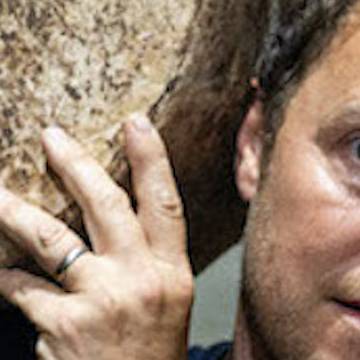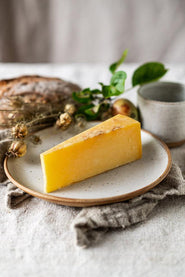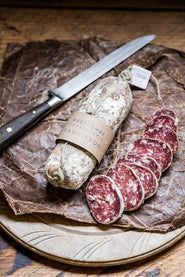In France, they have the word ‘terroir’ to describe the influence a specific area has on the food and drink produced there. Whether it be the cacao beans of Central America, or the oolong teas of China, geography plays an important role in the heritage and tradition of food produced in a certain region. With an award-winning combination of lush, verdant hills and pure spring water, Somerset cows produce exceptional cheddar which is famous throughout the British Isles, and further afield.
Whichever cheese is produced at Westcombe, whether it be the nutty notes of a fine Cheddar, or the richness of a Ricotta, these cheeses wouldn’t be what they are today without the unique qualities of the natural Westcombe terroir.
At Westcombe Dairy, the cows graze close to the dairy, meaning that the pure, unpasteurised milk is as fresh as it can be before the cheesemaking process begins. The principle at Westcombe Dairy and its adjoining farm, where the raw milk is sourced, is to work towards the idea of regeneration, farming in such a way that works alongside the natural environment, and not against it. By using more regenerative farming methods like grazing their cattle on a more diverse pasture, they hope it will transcend into their products, producing a more complex raw milk cheese. This progression into a more regenerative farming system at Westcombe Dairy is being captured over a series of months by The Westcombe Project on Instragram.

How is Westcombe's raw milk Cheddar made?
Westcombe Cheddar is made using raw milk, which contains plenty of natural flora. Under the tender care and attention of a talented cheesemaker, raw milk can transcend into a much more flavourful cheese. Robert Howard is the head cheesemaker at Westcombe, and ensures that every cheese produced is of the highest quality.
Each morning, the fresh raw milk comes into the dairy from the farm. Only the milk, traditional starter, rennet and salt are added in the production of their Cheddar. The whole procedure of making the cheese is fast and delicate, which allows for the milk’s complexity to really shine through into the final cheese. The Cheddar is aged from 1 year to even 18 months, during which time they are regularly turned and checked by the cheesemakers.

Westcombe Charcuterie
The concept of terroir is also crucial to Westcombe’s Charcuterie, which ranges from rich saucisson and pancetta to various types of delicious salami. All of the products are handmade in small batches, and butchered, seasoned, cured and aged at the dairy itself. Westcombe is home to a herd of top-quality, pasture-reared bull calves, who are reared to the highest standards of animal welfare at the farm. They spend the spring and summer months grazing in the lush, green pastures, and spend the winter in warm, deep straw barns. The care and attention which these calves receive really come through in the meat, and the veal produced at Westcombe is second to none.

Westcombe Charcuterie also likes to work with similarly regenerative-minded farms to source their ingredients, such as, Gotheleney Farm near Bridgwater. Fred Price at Gotheleney Farm rears native Tamworth pigs to a minimum of 10 months, over which time are fed a rich foraged diet. This produces pork that is high in nutrients and flavour, perfect for making saucisson and salami.

Westcombe’s philosophy of treating the land delicately, caring for it and nurturing it so that it can produce the finest quality ingredients, as at the heart of what they do. Working in harmony in nature is a principle that is key to both Westcombe and Pipers Farm, and we are proud to stock Westcombe products. You can follow Westcombe Dairy at @westcombedairy and you can buy their Clothbound Raw Milk Cheddar from Pipers Farm.




